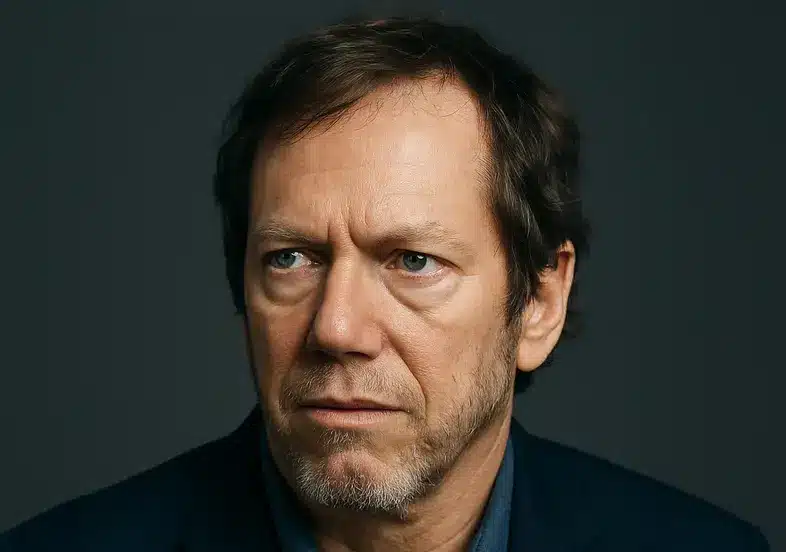Robert Greene’s life advice will leave you speechless as he reveals the fundamental strategies for finding your purpose, building meaningful skills, and creating a career path that aligns with your deepest passions. The bestselling author of “Mastery” and “The 48 Laws of Power” offers profound insights that challenge conventional career advice and provide a roadmap for anyone feeling lost or aimless in their professional journey.
Greene’s approach to life and career development is refreshingly honest and practical. Unlike typical self-help advice that promises quick fixes, Greene acknowledges that finding your purpose is complex and requires genuine introspection, courage, and sustained effort. His guidance is particularly valuable for job seekers who feel stuck in unfulfilling careers or uncertain about their next steps.
The core of Greene’s philosophy centers on the concept of “going inward” to discover what truly excites and motivates you. This process requires resisting the pull of external influences and social media noise to focus on your authentic interests and passions. For job seekers, this means taking time to reflect on what activities genuinely energize you, rather than simply following what appears successful or popular.
Greene’s advice is particularly relevant in today’s rapidly changing job market, where traditional career paths are being disrupted and new opportunities are emerging. His emphasis on skill development and continuous learning provides a framework for building a career that can adapt to changing circumstances while remaining personally fulfilling.
The urgency of Greene’s message cannot be overstated. He emphasizes that time passes quickly, especially in your 20s, and that delaying the search for your purpose can make the process much more difficult as you get older. This creates a sense of urgency for job seekers to begin their journey of self-discovery and skill development immediately.
The Inward Journey: Discovering Your Authentic Purpose
Greene’s first and most important piece of advice is to “go inward” and resist the external pressures that pull you away from your authentic self. This process requires honest self-reflection about what truly excites and motivates you, separate from what others are doing or what society expects of you.
The inward journey involves what Greene calls “archaeology” – digging deep into your past to find the activities and interests that genuinely excited you as a child. These early passions often contain clues about your natural talents and inclinations that can guide your career choices.
This process is particularly challenging because it requires you to ignore the noise of social media, peer pressure, and conventional wisdom about what constitutes a “good” career. Instead, you must focus on what genuinely makes you feel alive and engaged, even if it doesn’t seem immediately practical or profitable.
For job seekers, this means taking time to reflect on:
- What activities make you lose track of time
- What topics you naturally gravitate toward
- What problems you enjoy solving
- What kind of work environment energizes you
- What impact you want to have on the world
The inward journey also requires identifying what you hate, as this can be just as revealing as what you love. Understanding what drains your energy and what you want to avoid can help you make better career choices and avoid paths that will ultimately lead to dissatisfaction.
The Urgency Factor: Why Time Is Your Most Valuable Asset
Greene emphasizes that finding your purpose requires a sense of urgency, particularly for young people who might feel they have plenty of time to figure things out. He warns that the years in your 20s pass much faster than most people realize, and delaying the search for your purpose can make the process significantly more difficult.
The urgency factor is crucial because it creates the motivation necessary to take action rather than simply thinking about what you want to do. Without urgency, it’s easy to fall into the trap of endless planning and procrastination, which Greene identifies as one of the biggest barriers to success.
For job seekers, this urgency should translate into immediate action steps:
- Start exploring your interests through hands-on experience
- Begin building skills in areas that excite you
- Take small steps toward your goals rather than waiting for the perfect opportunity
- Learn by doing rather than just thinking about doing
The urgency factor becomes even more important as you get older. Greene notes that people in their 30s, 40s, and beyond often face additional challenges when trying to change careers, including financial responsibilities, family obligations, and the difficulty of shedding established identities.
However, Greene also points out that older individuals have advantages that younger people lack, including life experience, developed skills, and a better understanding of themselves and the world. The key is to leverage these advantages while maintaining the urgency to make necessary changes.
Learning by Doing: The Path to Mastery
One of Greene’s most powerful insights is the concept of “learning by doing,” which he contrasts with the modern tendency toward endless planning and preparation. He argues that the brain learns best through direct experience and that failure is often more valuable than success in terms of learning and growth.
This approach is particularly relevant for job seekers who might be stuck in analysis paralysis, constantly researching and planning but never taking action. Greene’s advice is simple: “Get off your ass and start” whatever it is you want to do, even if it means failing initially.
The learning by doing philosophy is based on the medieval apprenticeship model, where individuals progressed from apprentice to journeyman to master through hands-on experience. This process teaches skills that cannot be learned through books or courses alone.
For job seekers, this means:
- Starting projects or side hustles in areas that interest you
- Taking on challenges that stretch your abilities
- Learning from failures rather than avoiding them
- Building a portfolio of work that demonstrates your skills
- Seeking out mentors and opportunities for hands-on experience
Greene emphasizes that you learn more from three months of trying and failing than from years of planning or even from expensive degrees. This is because direct experience teaches you things that cannot be learned through theoretical study, including how to handle setbacks, work with others, and adapt to changing circumstances.
Turn Advice Into Action
Robert Greene’s life lessons inspire bold moves and strategic thinking — the same qualities employers value in top talent. Employers can channel this wisdom into their hiring by seeking ambitious professionals ready to make an impact. Post your job on WhatJobs today and connect with candidates prepared to turn insight into success.
Post a Job Free for 30 Days →The Skills Revolution: Building Your 21st Century Toolkit
Greene identifies skills as “the gold of the 21st century” and emphasizes that developing multiple skills is more valuable than focusing on money, reputation, or networking in the early stages of your career. This advice is particularly relevant in today’s rapidly changing job market.
The skills revolution is based on the idea that having multiple complementary skills allows you to create unique combinations that no one else can offer. This creates a competitive advantage that cannot be easily replicated or automated.
For job seekers, this means focusing on:
- Developing deep expertise in 2-3 complementary areas
- Learning skills that are difficult to automate
- Building skills that can be combined in unique ways
- Continuously updating and expanding your skill set
- Learning skills that align with your natural interests and talents
Greene warns against being seduced by money in the early stages of your career. He argues that taking a lower-paying job that offers more learning opportunities is often more valuable than a high-paying job that provides little growth potential.
This advice is particularly relevant for young job seekers who might be tempted by high salaries at prestigious companies. Greene suggests that the experience and skills gained from hands-on work at a startup or smaller company often provide better long-term value than the prestige and pay of a corporate position.
A Real-World Example: The Career Transformation Journey
Marcus Rodriguez, a 28-year-old from Austin, Texas, exemplifies the power of Greene’s advice in action. Two years ago, Marcus was working as a corporate accountant, feeling increasingly unfulfilled and trapped in a career that didn’t align with his interests. “I was making good money, but I felt like I was dying inside every day,” he explains.
When Marcus discovered Greene’s work and heard his advice about going inward and learning by doing, he decided to make a dramatic change. “I realized I had been living in the realm of possibility for years, constantly thinking about starting a photography business but never actually doing it,” he says.
Marcus began by taking Greene’s advice to heart. “I stopped overthinking and started doing. I bought a camera, started taking photos every weekend, and began building a portfolio,” he explains. “I also started learning video editing and social media marketing, combining skills that I was genuinely excited about.”
Within six months, Marcus had built a small but growing photography business while still working his accounting job. “I was learning so much more from actually doing the work than I ever did from reading about it or planning it,” he says.
After a year, Marcus made the leap to full-time entrepreneurship. “I combined my accounting skills with my photography and marketing skills to create a unique business model that helps other photographers with their finances and business planning,” he explains.
Today, Marcus runs a successful business that combines his natural interests with practical skills, earning more than he did in his corporate job while feeling genuinely fulfilled. “Greene’s advice about skills being the gold of the 21st century was spot on,” he says. “By developing multiple complementary skills, I created something unique that no one else could offer.”
Marcus’s advice to other job seekers reflects Greene’s philosophy: “Stop planning and start doing. Find what excites you, develop skills in those areas, and don’t be afraid to fail. The learning you get from trying and failing is worth more than years of perfect planning.”
Marcus’s story demonstrates that Greene’s advice isn’t just theoretical—it provides a practical roadmap for anyone willing to take action and pursue their authentic interests.
Your Journey Starts Now: Take Action Today
Robert Greene’s life advice will leave you speechless because it challenges everything you thought you knew about career development and success. His emphasis on going inward, learning by doing, and developing skills rather than chasing money provides a refreshing alternative to conventional career advice.
The key to implementing Greene’s advice is to start immediately. Don’t wait for the perfect moment or the perfect plan. Begin by identifying what truly excites you, then take small steps toward developing skills in those areas. Remember that failure is not the opposite of success—it’s a necessary part of the learning process.
The urgency of Greene’s message cannot be overstated. Time is your most valuable asset, and every day you spend in the realm of possibility is a day you’re not building the skills and experience that will lead to mastery and fulfillment.
Don’t let fear of failure or fear of success hold you back from pursuing your authentic interests. The world needs people who are willing to take risks, learn from their mistakes, and create unique value through the combination of their skills and passions.
Your journey toward mastery and purpose starts with a single step. Take that step today, and let Robert Greene’s wisdom guide you toward a career that not only provides financial security but also genuine fulfillment and meaning.




